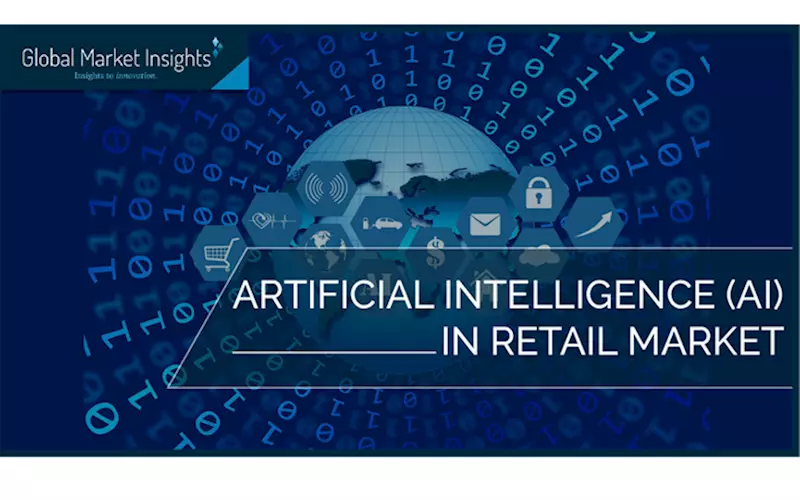Global AI in retail market to reach USD 20-billion by 2027
Global artificial intelligence (AI) in retail market size is projected to surpass USD 20-billion by 2027, according to an analysis report issued by the Global Market Insights. Artificial intelligence (AI) helps retailers to create data models related to consumers’ buying behaviour, which facilitate them in making demand forecasting and data-driven decisions. It also helps retailers to offer a personalised shopping experience to customers.
25 Jun 2021 | By PrintWeek Team
Extensive R&D investments to increase AI capabilities and its application scope in various industries will positively influence artificial intelligence in the retail industry. Reportedly, Europe in 2016 invested 3.2-billion euros in AI R&D, which has gone up by 1.5-billion billion in the past two years.
Growing adoption of AI, advanced analytics, and machine learning in the retail business, owing to their various advantages in laying out marketing strategies will augment industry expansion.
Demand for virtual assistant
Rising digital transformation in retail businesses globally will positively impact artificial intelligence in the retail sector. Brands across the globe are leveraging modern technologies to classify service offerings to customers and industries. To implement an effective structural landscape at the organisational level, companies are adopting virtual assistants and enterprise applications.
These virtual systems upon integration with cognitive technologies such as IoT, Al, and ML further enhance the operational capabilities of enterprises. Surging investments towards technology upgradation by enterprises to optimise workflow will boost AI technology acquisition.
Growing adoption by MSPs
The industry share from the managed segment is estimated to grow at over 30% between 2021 and 2027. Managed service providers (MSPs) are increasingly deploying AI technologies and intelligent algorithms to offer efficient outsourced services to their customers.
With the help of these technologies, MSPs can manage a wide range of services including network traffic controlling, end-user system maintenance, and others without human assistance. On account of the benefits and cost-effectiveness of these technologies, high adoption of AI among MSPs would escalate the artificial intelligence industry progression.
AI-based computer vision technology
The computer vision technology segment will expand significantly through 2027. AI-based computer vision technology uses a computer camera to track and monitor inventories and in-store activities.
Growing demand for vision-based cameras and automated security devices in retail stores will influence the high adoption of computer vision technology. Large-scale retailers heavily rely on these technologies to analyse customer interaction, footfall traffic, and shelf scanning.
Applications in marketing strategies
The market forecasting application of the AI in the retail industry will witness considerable growth between 2021 and 2027. Retail companies use AI-based solutions to gather information related to customer experience.
This information further assists companies to chalk out strategic planning and decision-making to implement several marketing activities, demand forecasting, resource scheduling, and financial planning. Growing reliance on data analysis for futuristic planning will encourage retailers and large enterprises to adopt AI-based technologies.
Booming retail industry in Europe
Europe AI in retail industry share will grow significantly at over 35% CAGR in the forthcoming years. The evolving retail sector and extensive government investments to promote AI technologies will complement the regional industry landscape.
For example, the France government in March 2018, had announced to invest USD 1.76-billion by 2022 for the development of AI technology in the country. Growing investment trends by organisations and the flourishing retail sector across the EU will provide lucrative growth opportunities to the regional players.
Leading firms offering AI for the retail industry are emphasising the introduction of integrated systems through strategic ventures. For example, BloomReach in March 2019, joined hands with a SaaS platform enterprise, BigCommerce. This partnership allowed these companies to integrate their AI-powered search engines and merchandising and access open-source CMS with a SaaS eCommerce engine.
For details, visit Global Market Insights.











 See All
See All